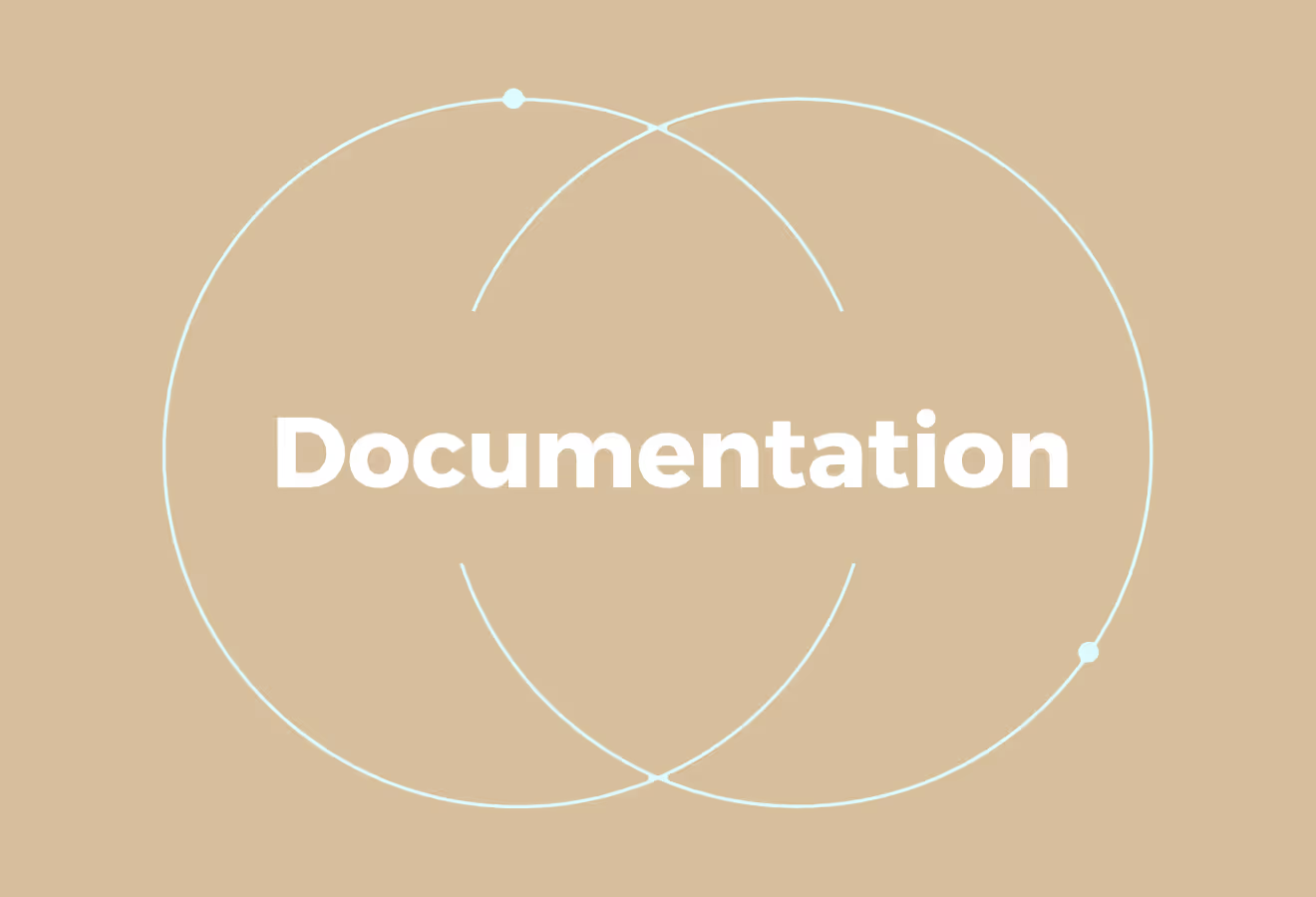Opening a Business Bank Account in Dubai for Non-Residents

Opening a Business Bank Account in Dubai for Non-Residents
Opening a business bank account in Dubai as a non-resident brings real questions about compliance, documents, and bank due diligence under the UAE Companies Law. From choosing free zone, mainland, or offshore structures to meeting KYC, AML, and FATCA CRS checks, you must gather proof of incorporation, shareholder details, a business plan, and verified signatures. What do banks actually ask for, and how do you prove company control from abroad? This article breaks down the steps, explains remote account-opening options and standard minimum deposit rules, and offers practical tips to speed up approval.
Suppose you want help turning those steps into action. In that case, Cercli’s global HR system simplifies paperwork, keeps your company records organised, and helps you meet bank KYC requirements, making it easier to open a corporate account.
Summary
- Non-residents can open business bank accounts in Dubai, but success depends on selecting the right bank and aligning the documentation. Over 80% of banks in Dubai offer services to non-residents, meaning choice is available, but selection is crucial for payroll and multi-currency needs.
- Documentation gaps are the biggest failure point, with approximately 30% of non-resident applications rejected due to incomplete paperwork, resulting in weeks of rework and lost operational momentum.
- Remote-only workflows often stall because many banks require in-person steps, with over 90% of banks requiring a physical presence at some point, so expect video or branch verification to be a common final hurdle.
- Opacity around ownership and nominee structures triggers enhanced due diligence and procedural delays, and approximately 75% of non-residents face challenges in providing the necessary documentation, making clear UBO evidence critical to avoid committee escalation.
- Submitting a single, audit-ready bank pack significantly improves outcomes, as 85% of applications are approved when all required documents are submitted correctly. An indexed PDF, cover narrative, and certified originals reduce follow-up cycles.
- Bank choice shapes day-to-day payroll operations, because non-residents hold about 25% of total deposits and account for approximately 30% of new account openings, meaning you should compare file format compatibility, multicurrency corridors, and SLA for bulk settlements before committing.
This is where Cercli's global HR system fits in; it centralises employee and payroll records, produces bank-ready payment files and signatory evidence, and aligns HR data with banks' KYC and compliance requirements.
Can Non-Residents Open a Business Bank Account in Dubai?

Yes. Non-residents can open business bank accounts in Dubai, but success depends on choosing the right bank and preparing a bank-ready corporate pack that meets the needs of your payroll and compliance workflow.
Get the bank selection and documentation right up front, and you remove the biggest sources of:
- Delay
- Errors
- Missed payroll runs
Which Banks Are Willing To Work With Non-Resident Companies?
The field is wide. According to AA Consultancy, over 80% of banks in Dubai offer services to non-residents, which means you can usually find either a local or international bank that fits your business model and currency needs.
That availability still involves variations in:
- Risk appetite
- Account functionality
- The formats banks accept for payroll disbursements
Bank choice matters for things like WPS and multi-currency payouts.
What Causes The Most Applications To Fail?
Documentation gaps are the main challenge. Aspira Business setup reports that approximately 30% of non-resident applications are rejected due to incomplete paperwork, resulting in weeks of rework and lost operational momentum.
Missing certified copies, unclear ownership records, or absent trade evidence are the typical culprits, and each rejection resets the onboarding clock.
The Hidden Cost of Manual Payroll and Bank Onboarding
Most teams treat account opening as an administrative task, which explains the friction.
That approach works early on, but when payroll timing, multi-currency supplier payments, and local statutory reporting converge, ad hoc bank onboarding creates hidden costs:
- Reconciliations spike
- Approval cycles lengthen
- Payroll runs drift into overtime
Platforms like Cercli help bridge this gap by centralising payroll mapping, generating bank-ready payment files, and automating compliance checks, so teams reduce manual handoffs and shorten the path from HR data to bank transfer.
If You Want To Move Fast, Treat Account Opening As A Systems Task, Not A One-Off Chore
Prepare a single “bank pack” that includes:
- Certified corporate documents
- Notarised identification copies
- Clear UBO evidence
- Signed mandates
- A short business narrative that explains cash flows and counterparties.
Think of it as matching plugs and sockets: the bank needs a precise format to accept direct salary files and debit instructions, and preparing those formats in advance prevents repeated rework. Also, ask the bank for their exact file specification and approval workflow before you submit anything, so your payroll system will output what they expect.
How Does This Decision Change Payroll Operations?
Choose a bank that supports your payroll's currency mix and can receive bulk salary files in the bank’s native format, and you cut manual reconciliation and approval friction. I have seen teams compress error-prone, multi-step disbursement processes into a single automated run once files and authorisations were aligned.
The outcome is:
- Predictable payroll timing
- Fewer corrective transfers
- Clearer audit trails for statutory reporting
Treating Account Opening as an Operational Alignment Task
Opening an account is operational work, not legal theatre; align the bank-side requirements with your HRIS and payroll process early, and you protect both time and trust.
That seems like the end of the setup, but the real obstacles are waiting just beyond the checklist.
Eligibility Criteria for Non-Residents
Non-residents can meet UAE banks' eligibility tests, but approval depends on how clearly you translate your company’s structure, cash flows, and control into bank-ready evidence.
Banks prioritise:
- Unambiguous ownership
- Traceable transaction history
- A coherent account purpose
Get those three right, and you remove most delay and extra scrutiny.
What Counts As Credible Proof Of Trading History?
When we assembled bank packs for regional clients, the pattern was clear: banks want transaction-level proof that links your licence to real activity.
Provide:
- Dated contracts
- Invoices with matching payment receipts
- Payment processor statements
- Client onboarding records that show the flow of funds from the counterparty to your corporate account
A useful rule of thumb, proven in practice, is to present at least one complete cycle of an invoice:
- Issued
- Paid
- Reconciled
That single sequence often converts sceptical reviewers into routine processors, thereby shortening review time.
How Do Banks Treat Ownership, Control, And Nominees?
Opacity around beneficial owners creates delay.
Banks will insist on:
- Certified shareholder registers
- Notarised director resolutions
- Clear control diagrams that trace influence to named individuals
Structures that rely on nominee directors or have unclear UBO chains will trigger enhanced checks, and it is there that most applications stall. Think of unclear ownership as a fog on a map; banks will slow their process until the route is visible, so make the map:
- Sharp
- Signed
- Certified
When Does A File Suddenly Need Enhanced Due Diligence?
In practice, enhanced due diligence is triggered by:
- High-value opening deposits
- Industries considered higher risk
- Complex cross-border payees
- Gaps in the ownership chain
When that happens, expect extra ID checks, source-of-funds letters, and sometimes escrowed or staged account openings, which can lengthen timelines from days to several weeks.
Mitigating Payroll and Compliance Risk
Most teams collect documents ad hoc because it feels fast at the start. That works until payroll and supplier deadlines collide with an account still under review, when the hidden cost shows up as rushed transfers, manual workarounds, and late payments.
Platforms like Cercli, with a global HR system, centralise employee records, payroll authorisations, and payment files, so banks receive consistent, audit-ready exports, reducing rework and the risk that a missed attachment becomes a full-stop review.
What Tactical Steps Cut Friction Right Away?
Get:
- Certified and translated documents are ready before you apply
- Nominate a local authorised signatory if possible
- Include bank statements that show the route of funds into your business
If you anticipate multi-currency payrolls, prepare a simple currency flow chart showing where funds originate and where salaries will be paid; that single page answers many follow-up questions.
The Value of a Contingency Payroll Reserve
Hold a contingency reserve equal to two payroll cycles to meet obligations while onboarding completes, removing the immediate pressure that leads teams to unsafe shortcuts.
It’s exhausting when repeated requests add weeks to a timeline, but clarity fixes most of it; present a straight record, preempt the obvious follow-ups, and you convert suspicion into standard processing.
Cercli: Integrating Payroll and Compliance for Banking Success
Cercli is designed for companies in the Middle East that need a flexible, compliant, and reliable way to manage their workforce across borders, and it integrates payroll, compliance checks, and reporting to ensure banking requirements align with HR data.
For teams that want a single place to map payroll to authorised accounts and produce bank-ready payment files, Cercli’s global HR system keeps approvals and audit trails connected to each payroll run.
That seems settled, but the next step reveals the one set of documents that actually decides whether an application sails or stalls.
Related Reading
- Can Foreigners Buy Property in the UAE
- Is There Property Tax in Dubai
- Can US Citizens Buy Property in Saudi Arabia
- Do You Have to Pay Taxes in Dubai
- LLC Company Formation in Dubai
- Setting Up a Company in Saudi Arabia
- How to Get a Trade License in Saudi Arabia
Required Documents Opening a Business Bank Account for Non-Residents

You need more than standard corporate documents; banks demand tightly formatted, recent, and authenticated evidence that ties people, control, and cash together in a way their compliance teams can quickly verify.
That means certified originals, attested foreign documents, formal source-of-funds statements, standard tax self-certifications, and a clear, signed mandate showing who will sign payroll files.
What Identity And Address Proofs Should I Prepare For Authorised Signatories?
- Certified passport copy, plus a hand-signed specimen signature on company letterhead, usually notarised.
- A recent proof of address for each signatory, such as a utility bill or local bank statement dated within the last 90 days; some banks accept a government-issued identification if it shows the current address.
- A short CV (Curriculum Vitae) or role description for each authorised signatory, notarised if they will sign payroll instructions, so banks can match authority to function during WPS or DEWS reporting.
How Must Foreign Corporate Documents Be Authenticated?
- Follow the attestation chain: notarisation in the home jurisdiction, then either an apostille for Hague Convention countries or embassy attestation for others, and final attestation by the UAE Ministry of Foreign Affairs, with certified translations into English or Arabic when requested.
- Add a certificate of incumbency or a certificate of good standing for any foreign corporate shareholder, each notarised and attested, so that the bank can verify the legal existence and authorised officers of the parent company without multiple follow-ups.
What Commercial And Financial Evidence Closes The Loop On Source Of Funds?
- Corporate bank statements covering the recent operating cycle, typically three to six months, and audited accounts for established entities, where available. For new companies, a concise cash flow projection and evidence of initial capital injection are required.
- Transaction-level proof that links invoices to receipts, merchant or payment processor statements when relevant, and client contracts that show expected recurring income, all signed and dated. Banks want to trace money to a real economic purpose, not just see balances.
What Regulatory And Tax Forms Will The Bank Ask For?
- Tax residency forms, such as FATCA and CRS self-certification forms, which establish tax residency, and sometimes a W-8BEN-E for US tax purposes if there are US connections. Expect detailed UBO declarations with exact ownership percentages and signed attestations for beneficial owners.
- Enhanced questionnaires if the business touches high-risk sectors, and a source-of-wealth or source-of-funds letter for large opening deposits or unusual flows.
How Should I Format And Deliver The File To Avoid Rework?
- Produce a single, indexed PDF package for initial electronic review, plus notarised hard copies couriered when originals are requested. Label items clearly, use the bank’s checklist order, and include a short cover letter that explains your typical cash flows and payroll cadence. Banks often reject packages because pages are out of order or signatures are missing, not because the content is wrong.
- Be ready for video and in-branch verification steps; some banks may request originals in person, which explains why remote-only workflows often hit a final hurdle.
Centralising Records to Accelerate Bank Review
Most teams assemble documents on a case-by-case basis because it feels faster. Still, that familiar approach creates cycles of bank follow-ups, recertifications, and delays that stretch onboarding from days into weeks.
Platforms like Cercli with a global HR system centralise:
- Employee and payroll records
- Map them to authorised bank accounts
- Export bank-ready payment files with matching signatory evidence
This shortens review cycles and reduces the number of back-and-forth requests.
What Are The Common Practical Failure Modes To Preempt?
- Missing apostilles or using an embassy attestation where an apostille was required, leading to re-attestation.
- Submitting copies older than the bank’s recency requirement, or unsigned mandates without specimen signatures.
- Failing to include tax self-certification and UBO percentages, which triggers enhanced due diligence. These procedural mistakes are a useful warning to plan extra time for certification and legalisation.
With originals accessible, on short notice, treat your bank pack like a pilot’s checklist, not a shoebox of papers:
- Organised
- Dated
- Certified
- Legible
That discipline protects payroll timing, reduces manual reconciliations, and preserves audit trails when regulators or auditors request historical payroll evidence.
What Should You Sequence First To Avoid Bottlenecks?
- Start with the notarisation and apostille steps for foreign corporate documents, as they take calendar days and often involve third parties.
- While attestation proceeds, gather recent bank statements, tax self-certifications, and signatory ID so you can deliver a fully formatted package to the relationship manager the moment originals return.
- Timing the sequence cuts the common rework loop and keeps payroll from being the emergency that forces risky shortcuts.
That explanation helps, but the account you choose can make documentation requirements feel either surgical or punitive, and the next part shows which banks actually make the process predictable.
7 Best Banks in Dubai for Non-Residents

Choose the bank that matches the operational demands of your payroll and cash flows, not the one with the most aggressive marketing.
For non-resident companies, that usually means prioritising three things:
- Reliable local disbursement rails for WPS and DEWS
- Low-cost international corridors for multicurrency payroll
- Predictable digital file formats for bulk salary transfers
Below, I map the major Dubai options to those needs so you can make a deliberate choice.
1. Which Bank Gives Your People The Easiest Local Access?
Emirates NBD stands out when you need broad physical reach and efficient cash access, with the country’s largest ATM network and extensive branch coverage that keeps everyday payroll and cash pickup friction low. RAK Bank offers a different kind of reassurance; its partial government ownership is something clients point to when they want institutional stability for salary accounts.
This matters in practice because employees call HR the day salaries arrive if ATMs are crowded or charge foreign fees; banks with extensive local access reduce those service calls and save hours of reconciliation work.
2. Who Should You Use For International Payroll And FX Corridors?
If your workforce spans currencies, Standard Chartered and First Abu Dhabi Bank are the practical choices, since their international rails and correspondent networks reduce FX margins and speed cross-border transfers.
Mashreq is worth considering where low-cost, rapid remittances matter, especially as its mobile app supports fee-free transfers to over 20 countries for certain corridors. The trade-off is this: choose an international bank and you gain FX efficiency, but you may need to take extra steps to align bulk salary files with UAE-specific payroll reporting requirements.
3. Which Banks Offer Sharia-Compliant Options That Still Work For Companies?
Dubai Islamic Bank provides a full suite of Sharia-compliant retail and corporate products, which matters when employees or clients require Islamic accounts.
The operability question is procedural, not philosophical: ensure the bank’s file formats and approval workflows remain aligned with your payroll disbursement process so ethical banking choices do not introduce operational exceptions.
4. How Will Your Bank Choice Change Day-To-Day Payroll Operations?
Most teams handle bank approvals and salary sign-offs through email threads because it is familiar and requires no new tools. That familiar approach works at first, but as headcounts and pay cycles grow, email fragments approvals, file versions diverge, and payroll runs take longer to approve.
Teams find that solutions like Cercli with a global HR system centralise:
- Signatures
- Produce bank-ready payment files in the format each bank expects
- Shorten approval cycles from days to hours while preserving an audit trail
5. What Does The Market Context Mean For Non-Resident Companies?
Non-resident funds are a significant portion of the system, which explains why many banks actively support cross-border customers.
Non-residents also account for approximately 30% of new bank account openings in Dubai, signalling that banks are tailoring products to non-resident needs, so you can negotiate service levels if you pick the right partner.
6. How To Make The Choice Without Guessing
Compare three operational variables, and be ruthless:
- Whether the bank accepts your payroll file format and supports the WPS or DEWS export you need
- Their multicurrency corridors and fees for the countries where you pay people
- The bank’s SLA for bulk payment settlements and reversals
In practice, the right match reduces:
- Manual reconciliations
- Eliminates late runs
- Keeps payroll audits straightforward
7. Beyond Risk: Making Payroll Predictable with Cercli
Cercli is designed for companies in the Middle East who need a flexible, compliant, and reliable way to manage their workforce, whether teams are local, remote, or spread across multiple countries.
Learn how a global HR system ties payroll, bank-ready payment files, and statutory reporting together so banking choices stop being a daily risk and become a predictable part of payroll operations.
That solution sounds decisive, but the next section reveals the concrete moves that actually tilt an application from “maybe” to “approved.”
Related Reading
- UAE VAT Registration Threshold
- Dubai Free Zone Company Setup Cost
- How to Start a Business in Saudi Arabia for Foreigners
- Business Setup Cost in Dubai
- Mainland Business Setup in Dubai
5 Tips for Increasing Your Chances of Approval

Get the package right, and the bank will process you like any other credible client; fail to prepare adequately, and the file goes to the queue for extra scrutiny.
Two practical habits lift approval chances more than anything else:
- Submit a single, audit-ready pack that answers obvious questions up front
- Follow a tight, documented follow-up schedule
1. How Should You Assemble The First Submission?
When we prepare filings for clients, the opening page does the work of ten emails.
Include:
- A one-page narrative that maps the licence
- Expected monthly inflows and outflows
- Primary clients
- The exact payroll cadence the bank must support
- Attach an indexed PDF with:
- Tabs
- Short certificate checklist
A correctly ordered, fully certified submission often converts a review into a routine approval rather than a prolonged investigation. Make the bank’s examiner the obvious next step forward, not a detective.
2. What Follow-Up Cadence Actually Shortens Decisions?
The same follow-up pattern recurs across approvals; silence breeds delay. Contact the relationship manager within 7 to 10 business days with a polite status email, then again at day 14 if you have not received a timeline.
Use a short script:
- Reference the application ID
- List the exact missing item, if any
- Offer a 15-minute call to clear questions
- Promise a timestamped replacement if needed
Log every exchange in a single tracker to provide the auditor with a clean paper trail.
3. Streamlining Payroll Approvals and Audit Trails
Most teams manage approvals through email threads because they are familiar and require no new tools. That approach works early on, but as stakeholders multiply the thread fragments, context vanishes, and the bank spends extra time reconciling versions.
Platforms like Cercli centralise:
- Approvals
- Map payroll files to the bank’s required format
- Keep an auditable approval flow
Teams compress review cycles from days to hours while preserving the exact evidence banks request for WPS and DEWS reporting.
4. How Should You Handle Source Of Funds And Initial Deposits?
Start small and show the chain. Rather than a single unexplained large deposit, stage opening funds so each tranche ties to an identifiable source, and supplies a short source of funds letter that cites invoices, payment gateways, or capital injection documents that match bank statements.
If funds route through an intermediary bank or correspondent, include that intermediary’s statement and the transfer reference so compliance teams can trace the flow without calling your client. That clarity often prevents an automatic escalation to enhanced due diligence.
5. How Do You Structure Signatory Authority To Avoid Late Payroll Problems?
The critical difference is clear mandates with specimen signatures and an up-to-date authorisation matrix.
Provide a signed mandate that names primary and secondary signatories, each with a scanned specimen and a notarised statement of authority, and confirm how approvals will be delivered, for example:
- A hardware token
- Bank mobile authorisation
- In-branch sign-off
If payroll timing is tight, ask the bank to accept dual electronic approvals for a trial period and secure that agreement in writing, so payroll runs do not stall due to a missing signature.
What Quick Steps Reduce The Chance Of Committee Escalation?
Ask the bank for the exact file spec and committee schedule before you apply, include a simple one-line FAQ addressing the three questions compliance will ask, and offer to provide a short demonstration of how payroll files will be generated and authorised.
Think of it like showing your boarding pass and passport together; the quicker the verifier can match two pieces of evidence, the faster you get through the gate. That next meeting will change what you thought was negotiable about the onboarding process.
Book a Demonstration to Speak with Our Team about Our Global HR System
Building on the operational steps above, treating bank onboarding as a late-stage task still creates missed payrolls, extra approvals, and frayed trust as you grow.
Now is the moment to test whether your bank connection is built for automation and insight; consider Cercli to:
- Align payroll
- Compliant bank-ready files
- Multi-currency disbursements
It then merges into one dependable workflow and book a demo to see it work in your markets.










